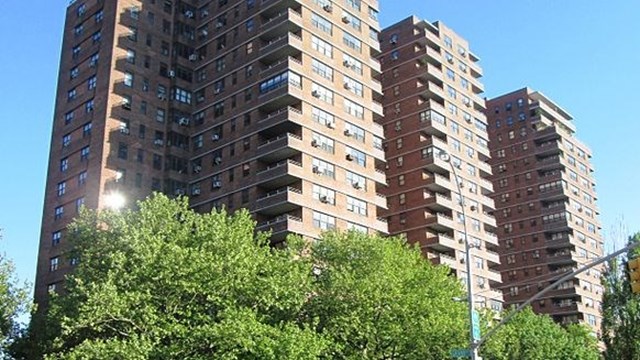The day-to-day operation of a residential condo or co-op can certainly be a handful for its board of trusted volunteers. But not to add insult to injury, communal living doesn't happen in a vacuum, and there are likely to be outside activities that may directly or indirectly bear on an association. Whether it's a rambunctious new watering hole, burdensome construction, or an eyesore obliterating the once pristine horizon, boards occasionally need to combat external factors in order to preserve the internal character of their associations, properties and neighborhoods.
Know Thy Enemy
There are numerous neighborhood factors that can chafe at the residents of a property therein, but attacks on the senses seem to act as unifiers. Unsightly blights, noise – especially of the late-night variety – and smells that seem to permeate walls are all agreed-upon bugaboos when it comes to big city living.
“We represent a building on the waterfront in Sheepshead Bay in Brooklyn,” says Stephen Elbaz, founder and president of Esquire Management Corp. in Brooklyn. “The board there successfully persuaded the powers that be within the city agencies to 1) install a park where they had originally planned to construct a building that would have obstructed views; and 2) have the drinking and loud music happening in the later hours of a restaurant strongly curtailed, as it had been keeping residents up well into the night.”
William D. McCracken, a partner with the Manhattan law firm Ganfer & Shore, LLP, relates a conflict between a school that aimed to expand in a landmarked neighborhood and the residents who felt such an expansion would diminish the aesthetics and character of the area. “The opposition resulted in a lawsuit and major back-and-forth between lobbyists,” he says, “as the school submitted some false letters of support by employees claiming to actually by residents. It became a huge political football.”
And catering halls can cause any number of issues, what with their juxtaposition of frequent deliveries of food and supplies, music, and pedestrian and vehicular traffic. “For one thing, under New York City's zoning resolution, catering is generally deemed to be incompatible with residential use,” says Phyllis H. Weisberg, an attorney with Montgomery McCracken Walker & Rhoads LLP, which has offices in New York, New Jersey, Pennsylvania and Delaware. “You get frequent truck deliveries, both to set up an event and break it down thereafter. And there are crowds arriving and departing more or less at one time, as opposed to a restaurant, where people dribble in and out all day. You have loud parties and often people will mill about noisily on the street. Photography taking place outside of the venues can block the sidewalks. This type of use can profoundly change the quality of life in the neighborhood, and if the neighborhood has a lot of families, introducing an element where noise from events, party goers outside after an event, and cars honking because of the traffic impact occur until the late hours of the evening--that can interfere with sleep, especially for children.”
Affecting Change
Oftentimes, by the time a board catches wind of something major happening in its community, the wheels have long been turning on the project in question, causing the board to pull together quite quickly should it want to intervene.
“Everyone likes to be a boss and direct traffic, but, oftentimes, nobody wants to get their hands dirty,” says Elbaz. “That's always a challenge; one of the reasons people buy into a condo or co-op is to be left alone. They don't want to worry about shoveling snow or garbage disposal.”
Also, external factors like the aforementioned are one of the few areas in which property managers don't really get involved. “These tend to be outside our scope, so it's on the board to be passionate and to reach out to elected officials,” urges Elbaz. “Elected officials don't perceive of management companies as potential votes, especially if that company operated outside their district. They want to hear from the residents.”
McCracken concurs. “Boards need to be members in their block associations and be signed up for community board notices,” he says. “If you're not involved on a community level, you're not living up to your fiduciary duty, in my opinion. You should know your police precinct. Be aware of your managing agent's relationships on which you may need rely.”
He continues: “Community boards, liquor authorities, landmarks etc. are all impressed when you have numbers on your side. “It's good to have a letter from your lawyer on behalf of the building, but it's much more impactful to have a petition with a ton of signatures, plenty of individual personal letters, from people who are not being paid to reach out.”
As far as how a board with limited time and resources can divvy up the responsibility to keep abreast of everything happening in its purview, McCracken has some suggestions. “Sometimes individual board members are interested in following all of this stuff, while other times you'll have a local gadfly on the block association who keeps everyone abreast,” he says. “In my co-op downtown, we have a neighbor across the street who sends out a mass email semi-monthly about the local goings-on. Especially in a city like this, there are resources available and people are plugged into existing networks, so it's not that difficult to get at least a minimum amount of info as to what's going on around you.”
Mike Odenthal is a staff writer and reporter for The Cooperator.







Leave a Comment